How to Help Your Dog Be a Good Neighbor
The doorbell rang the other day and I was surprised to see my neighbor standing on my porch with a beautiful black Labrador retriever on a leash. Mary lost her dog, Shawnee, also a black Lab, to cancer three years ago. Because she and her husband are in a busy stage of life — with aging parents and soon to be grandparents themselves — they agreed that holding off on another dog was best.
Mary and I can go months without talking because our houses are separated by hilly woods, but earlier in the week we caught up by the mailboxes. When I saw her on my porch just a few days later, I was surprised she hadn't mentioned they had gotten another Lab. Having a black Lab myself, I have a soft spot for the breed and this was a particularly handsome — wait a minute! It was my black Lab, Jack. Mary found him waiting for her in her driveway when she returned from a walk and kindly brought him home.
Shawnee died the winter we were displaced after our fire, and Jack— who loved her — can't seem to understand she's gone. A couple of times a year he goes on a "walk about" and usually makes a dash for Mary's house. I'm thankful she and her husband are dog lovers, in general, and fond of Jack, in particular. We have worked very hard to train Jack, and he is a well-behaved dog — very friendly and rarely barks — and yet he's clearly not perfect. We're so thankful for our neighbors' patient tolerance.
Not everyone hits the jackpot like we have neighbor-wise. Here a few suggestions on how you can help your dog be the very best neighbor.
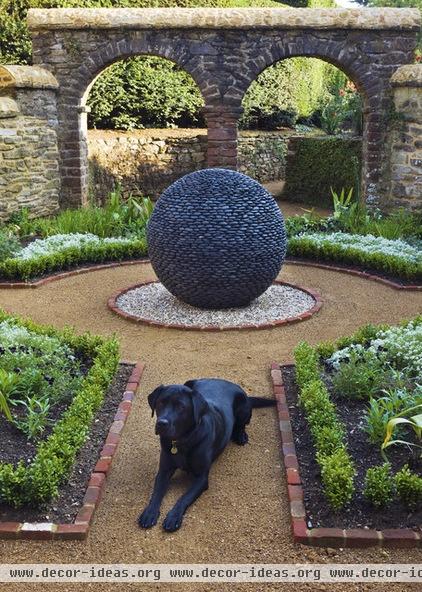
Train. A well-behaved dog makes everything easier. Once upon a time I wasn't a fan of dogs. I just knew too many that were untrained and didn't get enough exercise. Frankly, it's a lot of work. Taking the time to train your dog early will pay off for years to come, for you and certainly your neighbors.
Exercise. My friend likes to say, "A tired puppy is a good puppy." She's referring to her teenage son, but it's literally true, too. So many problems can be avoided by giving your dog a daily walk. It's good for both of you and builds your relationship.
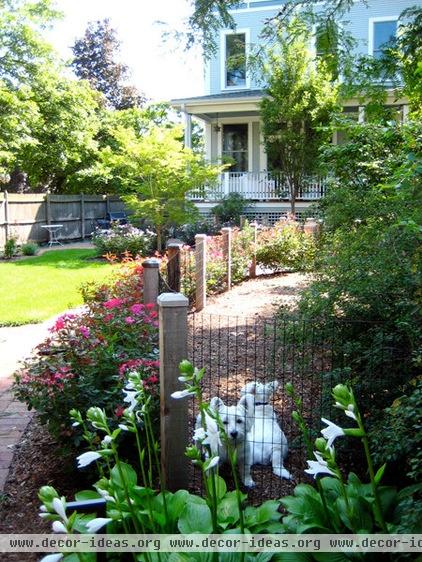
Make introductions. When you first move in or when you bring your dog home, make sure to properly introduce him to the neighbors. This simple step can save you a load of future trouble. You'll know if your neighbors love dogs or if there is any hesitancy or anxiety. Tell your neighbor your intentions: You want to be responsible and a good neighbor. And ask them to tell you if they have any concerns or notice anything you may miss.

Secure your dogs. "Good fences make good neighbors." A poem by Robert Frost actually questions this, but it's never truer when it comes to canines. If only for their own safety, make sure your dogs have secure boundaries.
If your yard is small, a traditional fence is your best bet. If your yard is quite large, an underground or electric fence may be a better choice. I know this is controversial. Many consider the use of any form of shock cruel. After our fire, with the position of our new house and the hills and woods, an underground fence was the only affordable option for us. I carefully trained the dogs on a leash. They learned their boundaries quickly and didn't challenge them. Neither is particularly strong-willed nor has the hunting instinct. They rarely even trigger the warning beeps. This system isn't for every dog, but it works beautifully for ours.

Doesn't it look like this dog is thinking, "Hey guys, I thought we were going for a swim. Guys?" Yes, we do talk for our dogs, all day, every day.
Make requests. If your dogs have any issues, make them known to your neighbors and politely ask for their support. A friend of mine had a dog named Miss Marple who didn't like children. We didn't have dogs then, and my kids were mad to pet any dog they met, but she politely let us know Miss Marple preferred to keep to herself. If I had young neighbors, I would invest in a solid fence to keep fingers out and prevent any possible accidents, even though my dogs are incredibly friendly.
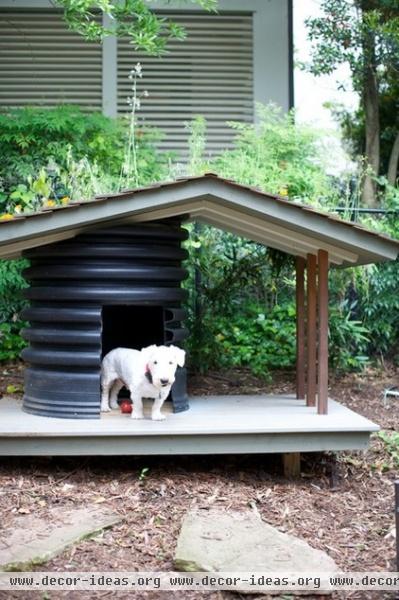
Check in. Ask how things are going, especially when you aren't around. Even if your dog is inside, he may bark non-stop when you're away. Most people hate anything close to conflict and won't complain, but if you invite feedback they will be more likely to tell you. If your dog is being a nuisance, you want to know, for his and your neighbor's sake.
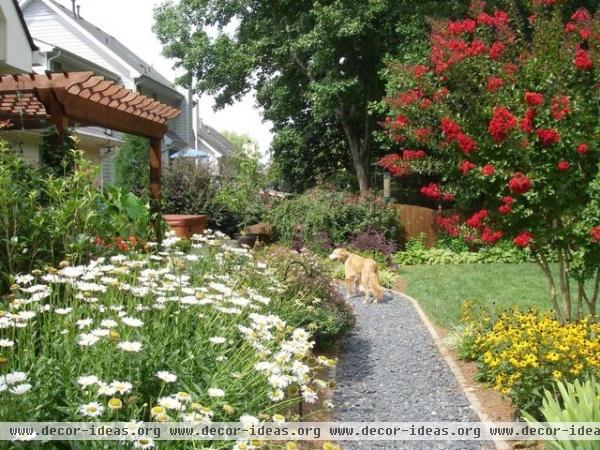
Even when everyone has the best intentions there can be problems. While we were rebuilding, our next-door neighbors adopted a beautiful German shepherd puppy. When we moved back in, he was almost a year old and viewed us, and our kids especially, as interlopers. Our yards are large and separated by woods and a hill. Our neighbors, who are great, had no idea their dog was charging down the wooded hill that separates our properties and barking every time one of us went in the backyard.
My kids loved the dog, but he was tearing up our new lawn, and even more troubling, he was standing his ground and growling — on our property. My husband let the neighbors know what was going on. Paul was calm and reasonable. We weren't angry, but concerned. The neighbors were apologetic and responded immediately. The first fixes didn't work, and Paul let them know, again calmly and reasonably. In a few weeks, everything was resolved safely and amicably.
Obviously this was a best-case scenario: both parties reasonable and responsible dog owners and lovers. But a lot can be learned from our situation.
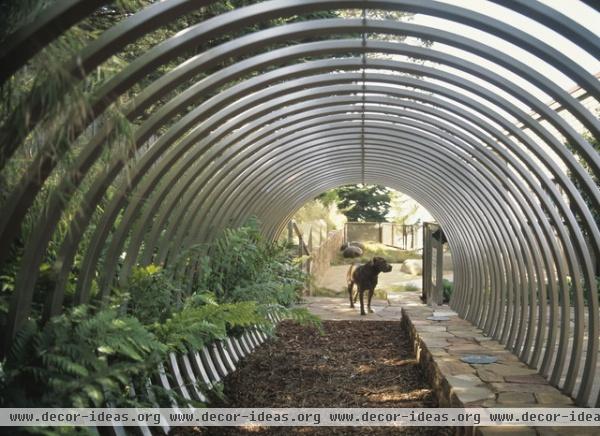
If you are the neighbor:
Assume the best. Your neighbors, like ours, may be unaware of the problem and eager to fix it. Maybe not, but a positive attitude won't hurt.
Calmly explain the situation. Getting upset makes everything more challenging and invites defensiveness from your neighbor. Stay calm and positive.
Be patient — my one caveat is unless the dog poses an immediate threat and your neighbor refuses to take direct action.
If you are the dog owner:
Stay calm. This may be difficult. Your neighbor's concerns may feel like an attack. At the very least it's uncomfortable hearing your beloved dog is being a pest.
Listen. You may be tempted to defend your dog or minimize your neighbor's concerns, but don't.
Make sure you hear and understand the problem. This is Being a Human 101, but so many of us miss it.
Brainstorm solutions. This may be obvious depending on the situation, but involving your neighbor in the problem solving will underline your concern and, potentially, save a lot of time.
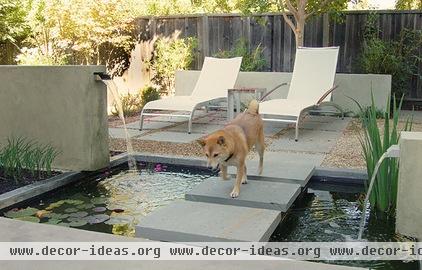
Your turn: Have you had any dog neighbor difficulties or triumphs? What about other pets? Please share your stories or suggestions in the Comments.
More: So You're Thinking About Getting a Dog












